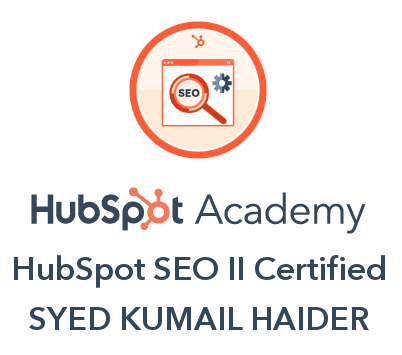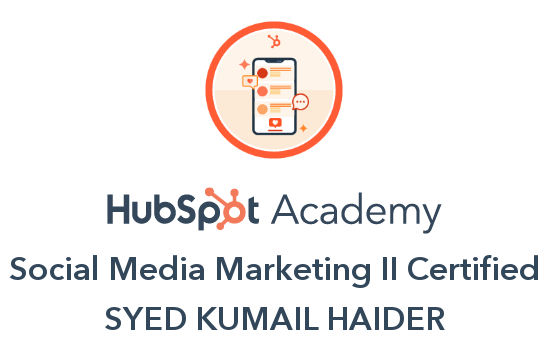How AI is Revolutionizing Digital Marketing in 2024
Digital marketing is an ever-changing industry. As technology continues to advance, new tools and techniques are constantly being developed to improve the effectiveness and efficiency of digital marketing campaigns. One of the most important advances in this field is the integration of Artificial Intelligence (AI), which is set to revolutionize digital marketing in the next few years.
What is Artificial Intelligence?
Artificial Intelligence is the development of computer software that can analyze data and make decisions. This technology has been around for decades, but it is only in the past few years that AI has been integrated into digital marketing strategies.
How is AI Revolutionizing Digital Marketing?
AI has already begun to change the digital marketing landscape in several important ways. Here are some of the key ways AI is being utilized to improve digital marketing:
1. Personalization
In the ever-evolving landscape of digital marketing, the integration of Artificial Intelligence (AI) has ushered in a new era of personalization, fundamentally transforming the way businesses engage with their audience. As we delve into 2024, the merging of personalization and AI is set to redefine digital marketing strategies, leading to more meaningful and tailored experiences for consumers.
The Role of AI in Personalization
· Dynamic Content Creation
AI-powered systems can analyze vast amounts of data to generate dynamic, personalized content in real-time. From personalized product recommendations to tailored email content, AI is streamlining the process of creating individualized experiences at scale.
· Predictive Personalization
AI’s predictive analytics capabilities enable businesses to anticipate consumer behavior and deliver personalized experiences proactively. By leveraging machine learning algorithms, businesses can forecast user preferences and tailor their marketing efforts accordingly.
· Automated Personalization
AI has enabled the automation of personalization efforts across various marketing channels. From chatbots providing personalized customer support to dynamic website content tailored to each visitor, AI is amplifying the reach and impact of personalized interactions.
The Future of Personalization with AI
· Hyper-Personalization
AI will drive hyper-personalization, where every touchpoint in the customer journey is meticulously tailored to the individual. AI-powered systems will harness a wealth of data to craft highly customized experiences, deepening consumer engagement and loyalty.
· Voice and Visual Recognition
AI is poised to revolutionize personalized experiences through advancements in voice and visual recognition technologies. Brands will leverage AI to understand and respond to users’ verbal and visual cues, creating seamless and personalized interactions.
· Ethical Considerations
As AI-driven personalization becomes more sophisticated, ethical considerations surrounding data privacy and consumer consent will be at the forefront. Businesses will need to navigate this landscape responsibly, ensuring that personalization efforts align with ethical principles and regulatory standards.
1. Lead Generation
In 2024, the integration of Artificial Intelligence (AI) is set to revolutionize lead generation strategies, reshaping the way businesses identify, engage, and nurture potential customers. Let’s explore how AI is poised to redefine lead generation in the digital marketing landscape.
The Role of AI in Lead Generation
· Data-Driven Insights
AI leverages data analytics to decipher patterns and trends, providing businesses with valuable insights into potential leads’ behaviors and preferences. By analyzing large datasets, AI can reveal actionable information for more effective lead generation strategies.
· Predictive Lead Scoring
AI-powered predictive lead scoring algorithms assess the likelihood of a lead converting into a customer based on historical data and behavioral patterns. This enables businesses to prioritize and allocate resources to leads with the highest potential, optimizing the conversion process.
· Automated Lead Nurturing
AI streamlines lead nurturing through automated workflows that deliver personalized content and interactions to potential customers. From personalized email campaigns to chatbots engaging leads in real-time, AI elevates the efficacy of lead nurturing efforts.
The Future of Lead Generation with AI
· Enhanced Lead Qualification
AI will empower businesses to qualify leads with unprecedented accuracy, discerning genuine prospects from the noise with advanced data analysis and machine learning. This will result in a more efficient and targeted approach to lead qualification.
· AI-Driven Personalization
AI will drive hyper-personalization in lead generation, tailoring interactions and content to the unique preferences and behaviors of potential leads. As a result, businesses will forge more meaningful connections, ultimately increasing the likelihood of conversion.
· Predictive Engagement
AI’s predictive capabilities will enable businesses to proactively engage potential leads at the right time and through the most effective channels. By forecasting when leads are most receptive, businesses can orchestrate timely and meaningful interactions.
1. Predictive Analytics
In the rapidly evolving landscape of digital marketing, predictive analytics serves as a valuable tool for businesses seeking to anticipate and respond to changing consumer behaviors and market trends. The incorporation of Artificial Intelligence (AI) in predictive analytics is set to revolutionize digital marketing strategies, predicting consumer behavior with increased accuracy, enhancing targeted marketing efforts, and ultimately driving higher ROI. Let’s explore how AI is poised to transform predictive analytics in digital marketing in 2024.
The Role of AI in Predictive Analytics
· Efficient Data Processing
AI demonstrates unparalleled capabilities in data processing and analytics, allowing businesses to harness large volumes of data with greater speed and accuracy. This capability enables businesses to create better and more data-driven predictive models with higher levels of insight.
· Automated Predictions
AI-powered predictive analytics systems automate time-consuming processes such as data entry and data cleaning, reducing the risk of human error. Automation allows businesses to scale and streamline their operations, creating more sophisticated predictive models in less time.
· Increased Accuracy
AI’s machine learning algorithms improve the accuracy of predictive analytics by analyzing data patterns and identifying insights that humans may overlook. As algorithms learn from prior predictions, they become more accurate over time, enabling businesses to make more informed decisions.
The Future of Predictive Analytics with AI
· Real-Time Predictions
AI-enabled predictive analytics will enable businesses to make real-time predictions based on data insights. This will facilitate agile decision-making, allowing businesses to respond quickly to changes in market trends and consumer behavior.
· Dynamic Targeted Marketing
AI-powered predictive analytics will drive dynamic targeted marketing, where businesses can create personalized and meaningful interactions with their audience in real-time. This will foster deeper connections with consumers, ultimately driving higher brand loyalty and revenue growth.
· Predictive Process Optimization
Predictive analytics will also play a pivotal role in optimizing business processes in 2024, ultimately driving increased efficiencies and cost savings. By forecasting market trends and identifying potential risks and opportunities, predictive analytics will guide businesses in optimizing their operations and resource allocation.
1. Content Creation
As we look ahead to 2024, the integration of Artificial Intelligence (AI) is set to revolutionize content creation strategies, reshaping the way businesses develop, personalize, and distribute content that resonates with their target audience. Let’s explore how AI is poised to transform content creation in the digital marketing landscape.
The Role of AI in Content Creation
· Data-Driven Insights
AI analyzes vast amounts of data to uncover trends, preferences, and patterns in consumer behavior. This data-driven approach enables businesses to create content that aligns with the interests and needs of their target audience, increasing engagement and conversion rates.
· Personalization at Scale
AI-powered tools can personalize content at scale by tailoring messaging, recommendations, and experiences to individual preferences. This level of personalization enhances the relevance and impact of content, creating more meaningful interactions with consumers.
· Content Generation
AI-powered content generation tools can create a variety of content types, from articles and blog posts to social media posts and product descriptions. These tools use Natural Language Processing (NLP) algorithms to generate coherent and engaging content quickly and efficiently.
The Future of Content Creation with AI
· Dynamic Content Optimization
AI will enable businesses to optimize content dynamically based on real-time data and insights. AI algorithms will analyze audience engagement metrics and user behavior to fine-tune content elements such as headlines, images, and calls-to-action for maximum impact.
· Automated Content Distribution
AI-powered content distribution platforms will automate the process of sharing content across various channels based on audience preferences and behavior. This automation will enable businesses to reach their target audience effectively and drive traffic to their digital properties.
· Cross-Channel Content Integration
AI will facilitate seamless integration of content across multiple channels, ensuring a consistent brand voice and message throughout the customer journey. By unifying content strategies across channels, businesses can create cohesive and impactful brand experiences for their audience.






